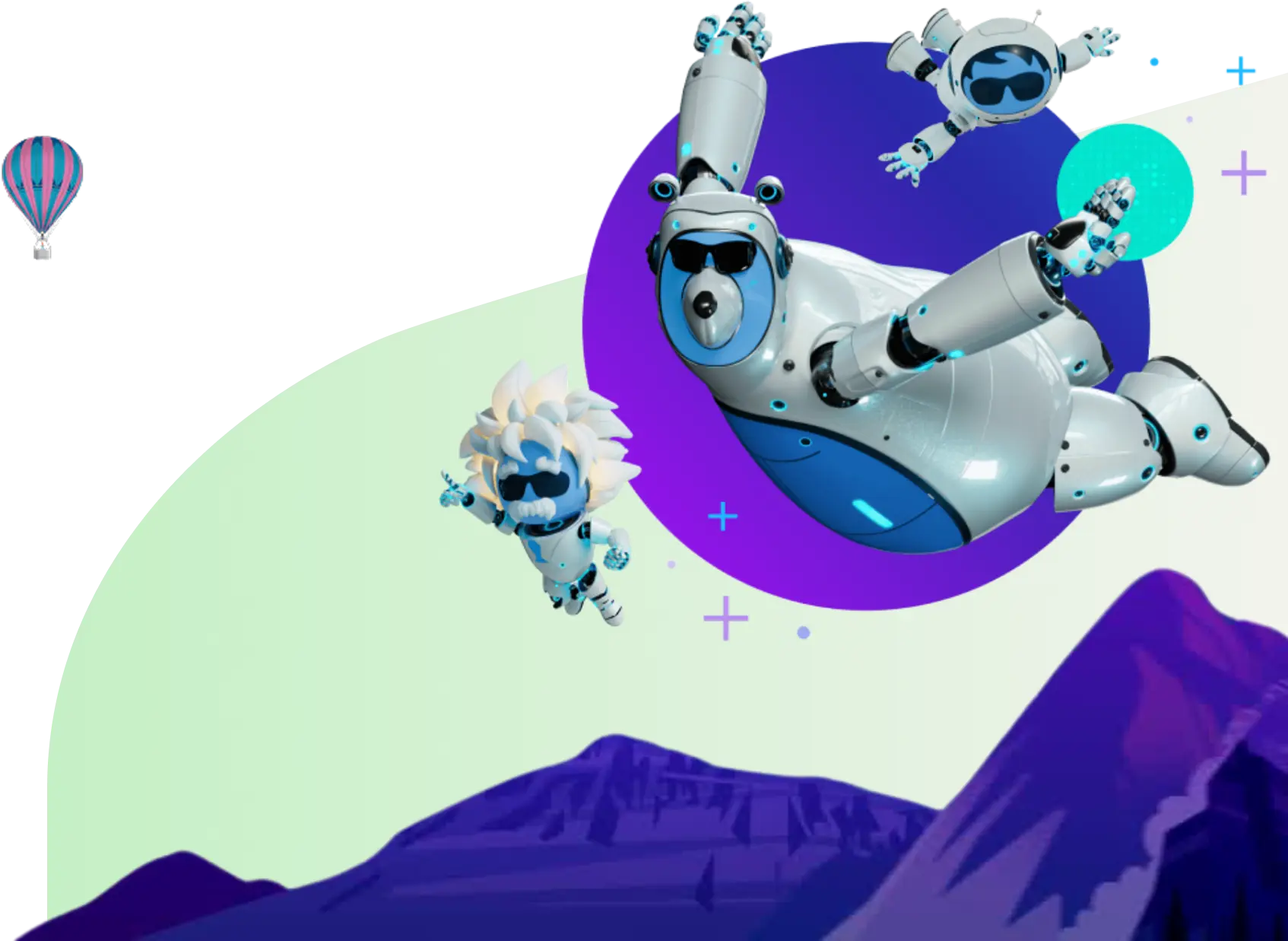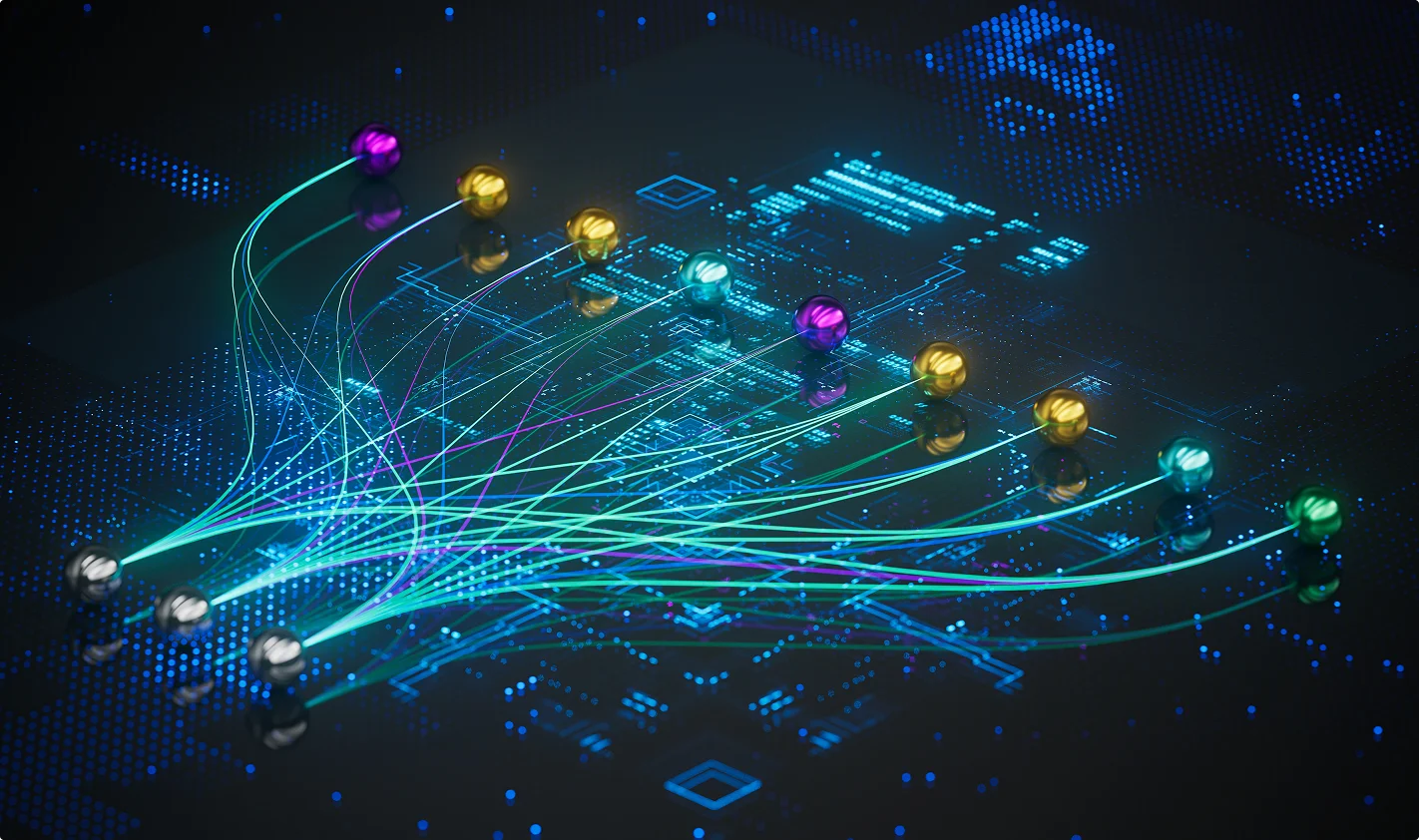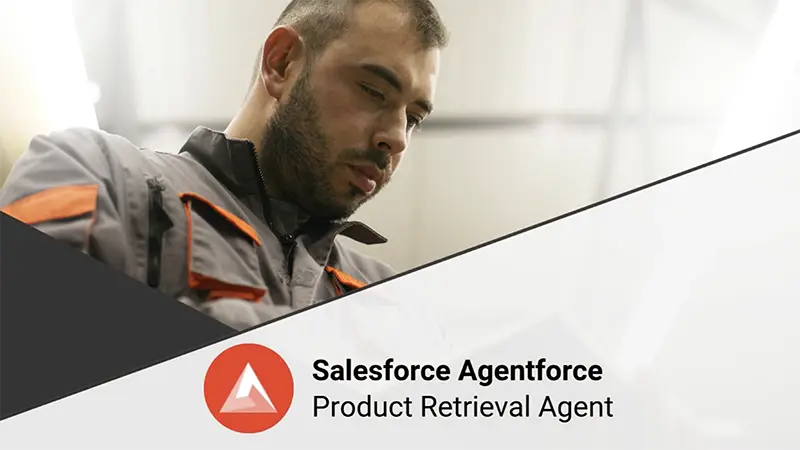Agentforce & beyond
AI agents that speak your industry’s language
54
Agentforce projects
56
Agents provisioned

Get the Power of AI Agents at Your Fingertips
Download our quick five-step guide on how to get started with Agentforce—plus, an exclusive offer hidden inside!

Less pitch, more proof
What Agentforce actually is
Agentforce is Salesforce’s autonomous AI agent layer
Agents that don’t just hand over recommendations or draft content, but can reason, take action, and deliver real results across sales, service, marketing, commerce, and more.
Built to work deeply inside the Salesforce Platform
These agents draw on your enterprise data, business logic, workflows, and apps to make decisions — not generic answers.
They come with guardrails, governance, oversight
Dashboards to monitor performance, templates and pre-built “agent actions”, partner integrations, and quality controls.

Why Agentforce?
of customer inquiries resolved without a human
increase in self-service quality improvement after deploying AI-powered service
faster support request resolution, freeing humans for higher value work
Autonomy with purpose
It’s not just about automating repetitive tasks — Agentforce enables agents to take multi-step actions. For example: resolving a customer case, qualifying leads, orchestrating a campaign. All without waiting for humans to micromanage each step.
Speed & scale
Companies are seeing much faster response times, more consistent execution, and the flexibility to scale up when demand surges.
Built-for trust
It’s not AI on the fringes; it’s integrated. That means adherence to security, data privacy, compliance, model accuracy, and oversight via tools like the Agentforce Command Center.
Agentforce, decoded: What we’ve learned, where it wins.
Demos
Agentforce demystified — your questions answered.
What is Salesforce Agentforce?
Agentforce is Salesforce's autonomous AI agent platform for building and deploying intelligent agents to automate tasks and support employees and customers. It allows businesses to create custom AI agents using natural language, which can then perform actions across various business processes, such as answering support inquiries, generating marketing campaigns, or qualifying leads. These agents leverage the Salesforce platform's Data Cloud for grounding in business data and are protected by the Einstein Trust Layer.
How does Agentforce use AI?
Agentforce uses AI to build autonomous AI agents that assist with tasks by using natural language to understand job requirements and integrating with company data. The AI agents leverage the Salesforce platform to access customer data, reason through complex requests, and execute actions within defined guardrails, which helps improve efficiency and customer support.
What are the main components of Agentforce?
Agents: I agents are a type of artificial intelligence (AI) system that can understand and respond to customer inquiries without human intervention. They are created using an agent builder, like Agentforce, and rely on machine learning and natural language processing (NLP) to handle a wide range of tasks.
Role: An agent’s purpose. This defines the job to be done and the broader goals the agent should achieve on your team.
Knowledge: The data an agent needs to be successful. This could include company knowledge articles, CRM data, external data via Data Cloud, public websites, and so on.
Topics: An Agentforce topic is a defined "job to be done" that guides an AI agent on a specific set of tasks, instructions, and actions. It categorizes the agent's responsibilities, such as "Order Management" or "Customer Support," and provides the rules and tools (actions) the agent uses to handle a customer's request within that specific area.
Actions: The goals an agent can fulfill. This is the predefined task an agent can execute to do its job based on a trigger or instruction. For example, it could run a flow, prompt template, or Apex.
Guardrails: The guidelines an agent can operate under. These can be natural-language instructions telling the agent what it can and can’t do, when to escalate to a human, or could come from built-in security features in the Einstein Trust Layer.
Channels: The applications where an agent gets work done. This can be your website, CRM, mobile app, Slack, and more.
Can Agentforce be adapted to different industries and use cases?
Yes, Salesforce Agentforce can be adapted to different industries and use cases due to its flexible architecture and customization capabilities. It can be tailored to handle specific business needs across various sectors, such as healthcare, finance, and retail, by automating tasks, personalizing customer interactions, and providing actionable insights.
What are the main benefits of using Agentforce?
The main benefits of using Agentforce include boosting efficiency and productivity through task automation, improving customer experience with 24/7 support and personalized interactions, and enabling better business decisions with data-driven insights. It also helps reduce operational costs, allows for seamless scalability, and can provide real-time coaching and collaboration for human agents.
Does Agentforce integrate with existing systems and applications?
Yes, Agentforce is designed to integrate with existing systems and applications through various methods, including APIs, MuleSoft connectors, and Salesforce's own automation tools. It can connect to both internal Salesforce data and external systems like ERPs and other cloud services, allowing AI agents to access and process data from across your entire enterprise. This integration enables autonomous workflows that can operate across different platforms and applications.
What role does the Data Cloud play in Agentforce?
With Data Cloud, Agentforce not only has access to every relevant piece of trusted enterprise knowledge (files, videos, images, websites, tickets) and data (across systems, lakes, warehouses, and Customer 360), but also understands its context, enabling it to make intelligent, actionable, and trusted recommendations in real time. That’s where Agentforce becomes incredibly powerful. Data Cloud is central to Agentforce’s capabilities, bringing together structured and unstructured data from a multitude of sources in real time.
How does Salesforce ensure Agentforce is secure and compliant?
Salesforce ensures Agentforce is secure and compliant through a combination of its built-in Einstein Trust Layer, strong access controls, and by integrating with existing Salesforce security features like field-level security. Key security measures include a zero-retention policy, data encryption, and automated monitoring to enforce policies, prevent data exfiltration, and maintain audibility.
How can organizations get started with Agentforce?
Getting started typically involves defining desired outcomes, identifying key use cases for AI and automation, and integrating existing data into the Salesforce ecosystem. From there, organizations can pilot Agentforce capabilities before scaling across departments or regions.
Ready to reinvent your future?
















